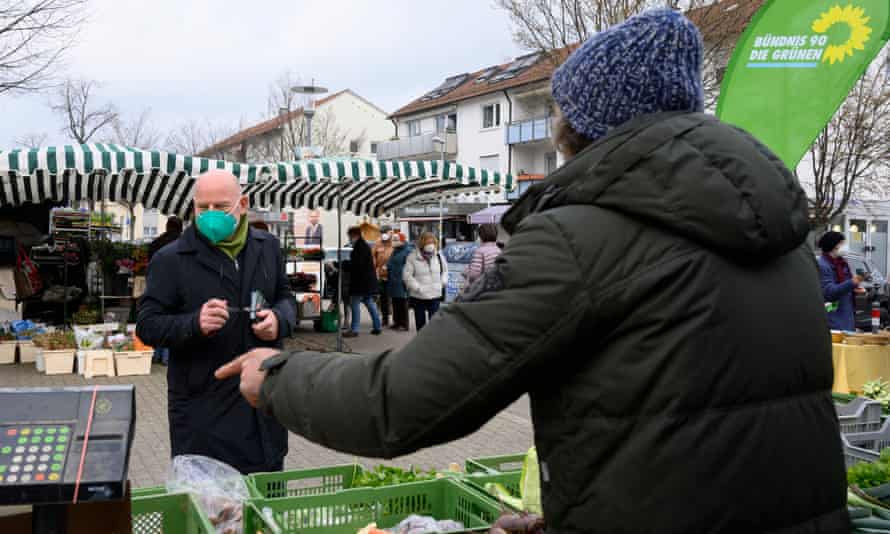A party founded by school climate strikers is standing in the German local elections, hoping to entice Green party supporters and first-time voters.
Two of Klimaliste’s (Climate List) founders were leaders of the student climate strikes sparked by Greta Thunberg in 2019. The party was set up less than six months ago with policies aimed at ensuring the Paris agreement climate pledges are not breached.
It is on the ballot for this weekend’s elections in the German state of Baden-Württemberg. The founders, all of whom are under 35, say they felt they had no choice: they live in the only state in Germany led by the Green party, yet they see more support going to the powerful local car industry than to renewable energy.
One of Klimaliste’s early successes was to push the other parties in the state government, including the Greens, to incorporate the 2016 Paris pledge to limit global warming to 1.5C above pre-industrial levels into their manifesto programmes.

Some members considered this job done and left to reassert their support for the Greens. Other members did not trust the other parties to act on their promises, so they stayed. Klimaliste’s policies include a total switch to renewables within five years, a fair transition away from fossil fuels, the introduction of a citizens’ assembly and lowering the voting age.
To run in the election, the founders had to register Klimaliste as a party, recruit two candidates for each of the 70 districts in the state and collect 5,000 signatures – all during the pandemic.
One candidate, Cordula Markert, 30, who spent her last two birthdays camping out with Extinction Rebellion, says the processes for starting a party were designed for a pre-digital era and there were times when she thought they may not make it through the bureaucratic quagmire.
Markert admits that the party’s flat organisational structure can be inefficient but says it models the kind of direct democracy Klimaliste would like to see in action.
Since September 2020 the party has grown to about 450 members, many of them activists and scientists. In part, Klimaliste is a product of the disappointment many members feel towards the Baden-Württemberg Green party, which they believe has made too many compromises for the sake of power and popularity and has not been bold enough in responding to the climate emergency.
Polls suggest the Greens will secure a solid victory in this weekend’s vote, but Klimaliste hopes to attract disillusioned Greens and a large proportion of the 500,000 first-time voters.
Talks are under way about whether Klimaliste should fight in the central government elections this autumn, but some members are concerned about undermining the Green vote.
Klimaliste Baden-Württemberg is part of a network that started in 2019 in Erlangen, Bavaria. Sebastian Hornschild and fellow Fridays for Future strikers were not satisfied that their demonstrations were doing enough and set up Klimaliste to run in their municipal elections. They won two seats and Hornschild, 31, is now a Klimaliste city councillor.


Average Rating